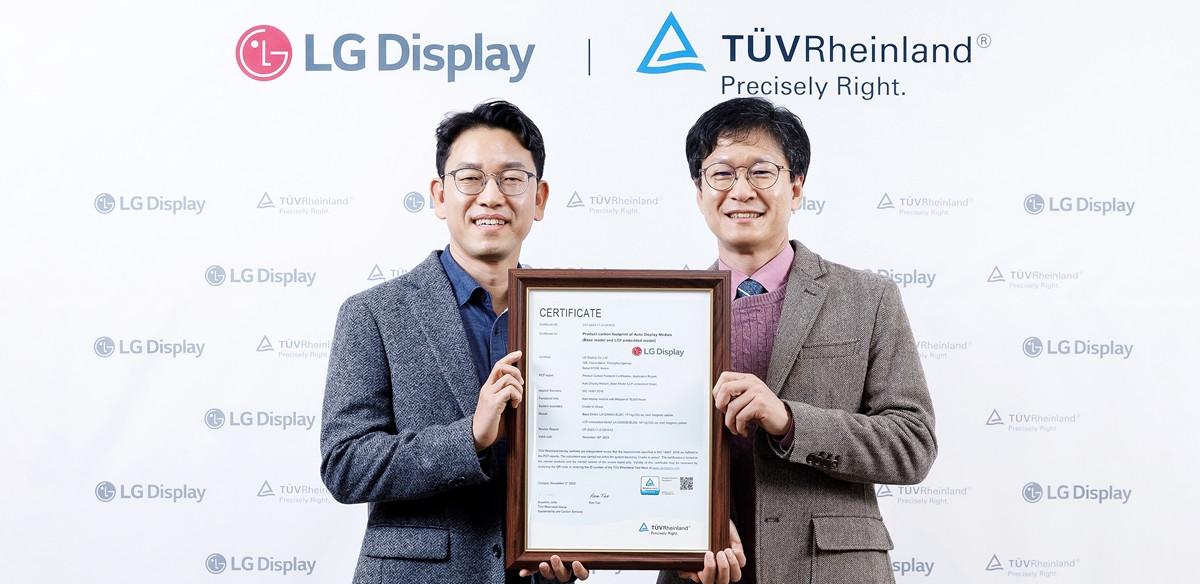LG Display, a leading innovator of display technologies, has recently announced that its automotive OLED displays have become the first to receive the ‘Product Carbon Footprint (PCF)’ certification for automotive OLED displays from TÜV Rheinland, a leading global independent testing, inspection and certification body. This certification has been granted to two models (Auto Display Module – Base Model) for complying with the International Standard for Carbon Emission Measurement (ISO 14067:2018) and undergoing TÜV Rheinland’s critical evaluation of carbon emissions generated from design to production and disposal.
By incorporating LG Display’s independently developed ‘Light Control Film Integration Technology,’ the film enhances visibility by controlling the direction of light within the panel, which also reduces its carbon emissions by up to 18% compared to previous standards. Added benefits of this technology include production simplification, reduced weight, and enhanced energy efficiency compared to conventional panels that use external films.
Flexible plastic substrate
LG Display’s Light Control Film Integration Technology is being applied to the company’s automotive display products such as P-OLED and Advanced Thin OLED (ATO). P-OLED utilises a flexible plastic substrate to achieve a slim, lightweight, and flexible panel that consumes 60% less power and is 80% lighter than most LCDs. Meanwhile, ATO aims to expand the automotive OLED market with its competitive price point by replacing P-OLED’s plastic substrate with a glass substrate.
These automotive displays incorporate the company’s pioneering Tandem OLED, a groundbreaking two-stack OLED technology that adds an extra organic emitting layer for brighter screens, optimal stability, and longer lifespans compared to single-layer OLEDs. The company’s second-generation Tandem OLED, which has been in production since last year, features higher brightness and enhanced durability while reducing power consumption by 40%.
Minimising environmental impact
In alignment with the world’s growing preference for eco-friendly automotive components, LG Display is actively developing automotive display technologies and products that minimise their environmental impact. This latest certification comes after the company’s automotive OLED and LTPS LCD displays obtained the Eco-Product Certification Mark from SGS, a global inspection and certification organisation, for minimising the use of hazardous substances and realising greater energy efficiency.
“By making our differentiated technologies, such as Tandem OLED and SPM (Switchable Privacy Mode), more environmentally friendly, we are further cementing our position as the global leader of automotive displays,” said Keuk-sang Kwon, Vice President and Head of Auto Product Development Division at LG Display.


